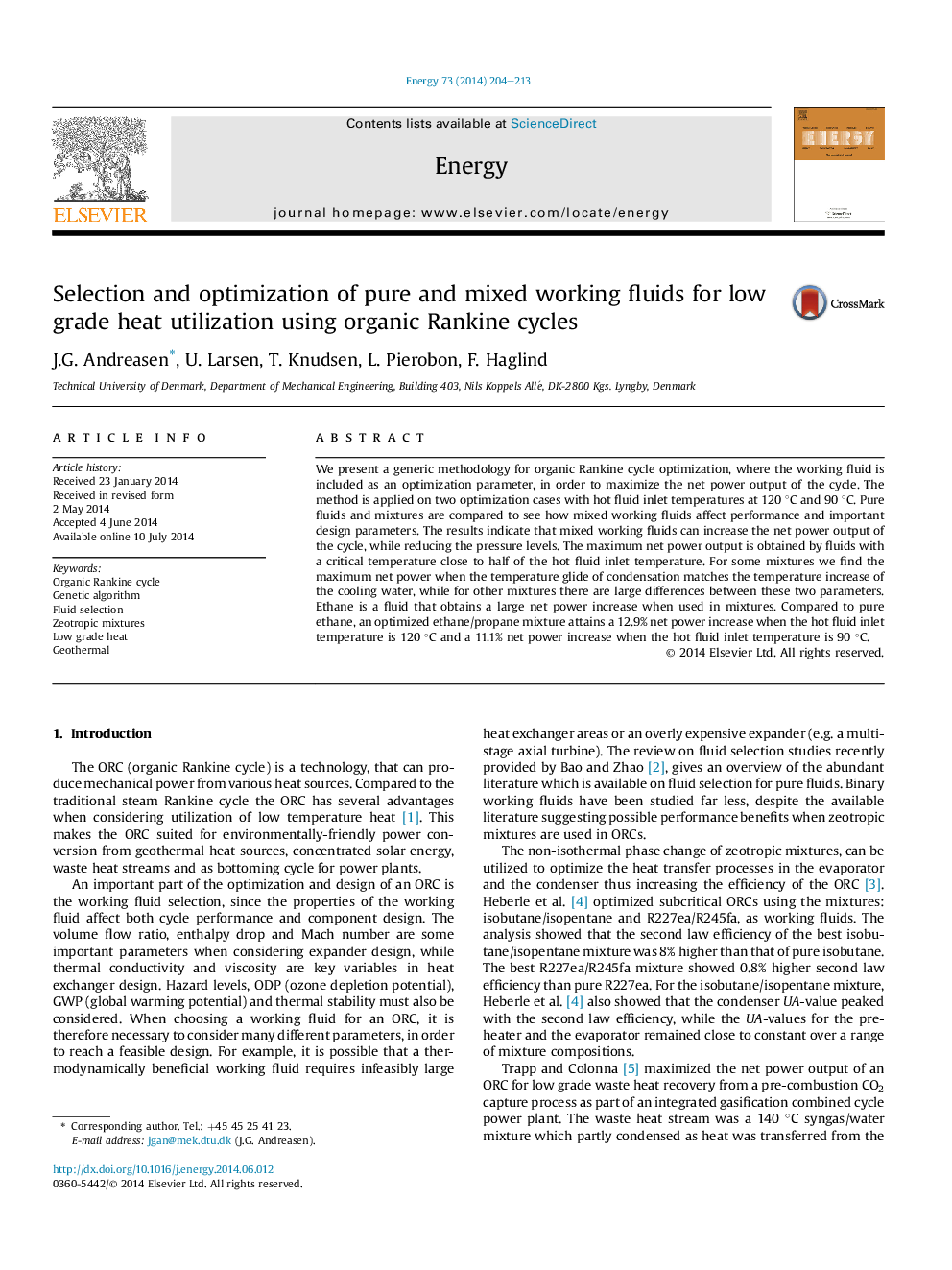| Article ID | Journal | Published Year | Pages | File Type |
|---|---|---|---|---|
| 8076986 | Energy | 2014 | 10 Pages |
Abstract
We present a generic methodology for organic Rankine cycle optimization, where the working fluid is included as an optimization parameter, in order to maximize the net power output of the cycle. The method is applied on two optimization cases with hot fluid inlet temperatures at 120 °C and 90 °C. Pure fluids and mixtures are compared to see how mixed working fluids affect performance and important design parameters. The results indicate that mixed working fluids can increase the net power output of the cycle, while reducing the pressure levels. The maximum net power output is obtained by fluids with a critical temperature close to half of the hot fluid inlet temperature. For some mixtures we find the maximum net power when the temperature glide of condensation matches the temperature increase of the cooling water, while for other mixtures there are large differences between these two parameters. Ethane is a fluid that obtains a large net power increase when used in mixtures. Compared to pure ethane, an optimized ethane/propane mixture attains a 12.9% net power increase when the hot fluid inlet temperature is 120 °C and a 11.1% net power increase when the hot fluid inlet temperature is 90 °C.
Keywords
Related Topics
Physical Sciences and Engineering
Energy
Energy (General)
Authors
J.G. Andreasen, U. Larsen, T. Knudsen, L. Pierobon, F. Haglind,
